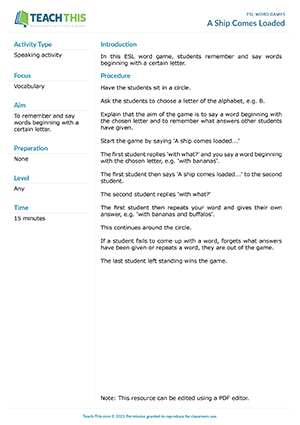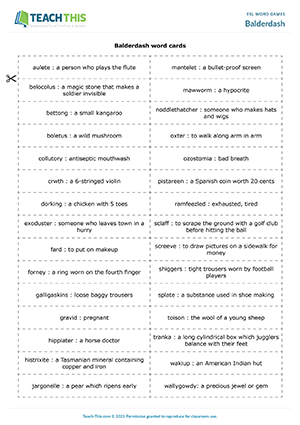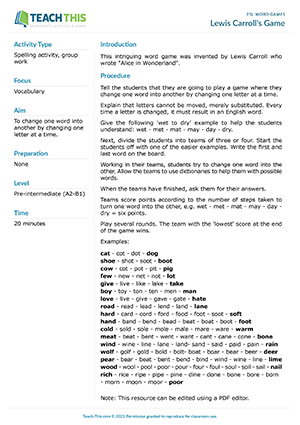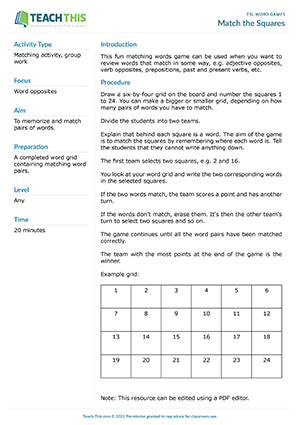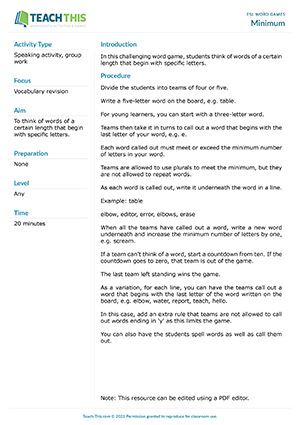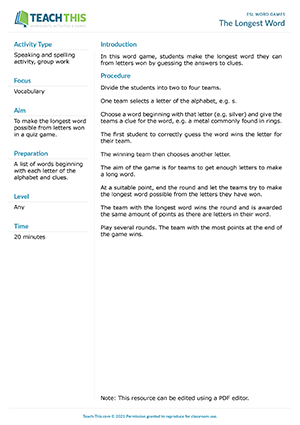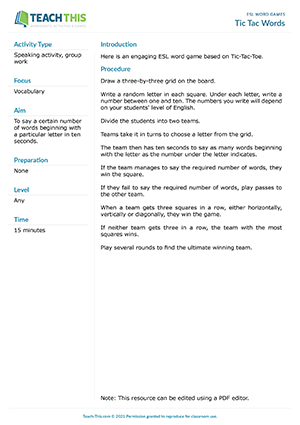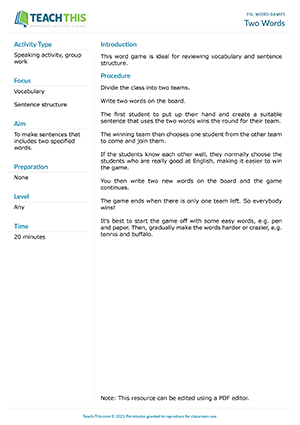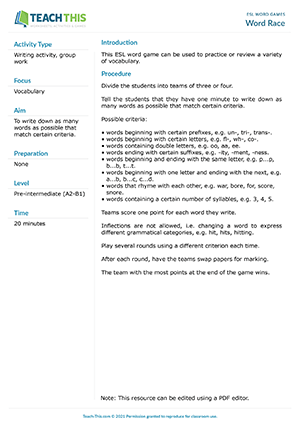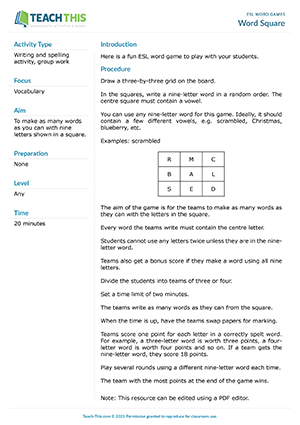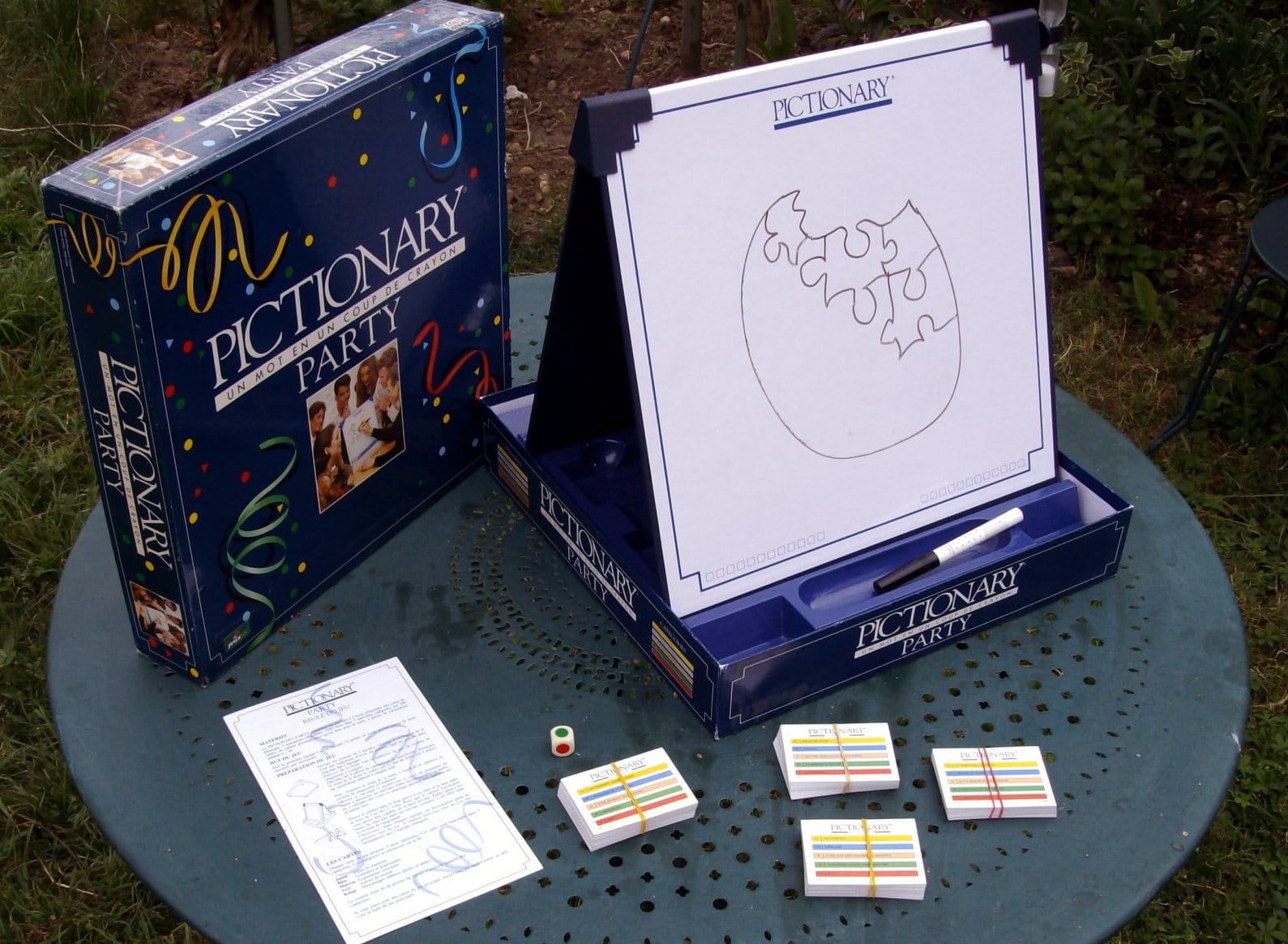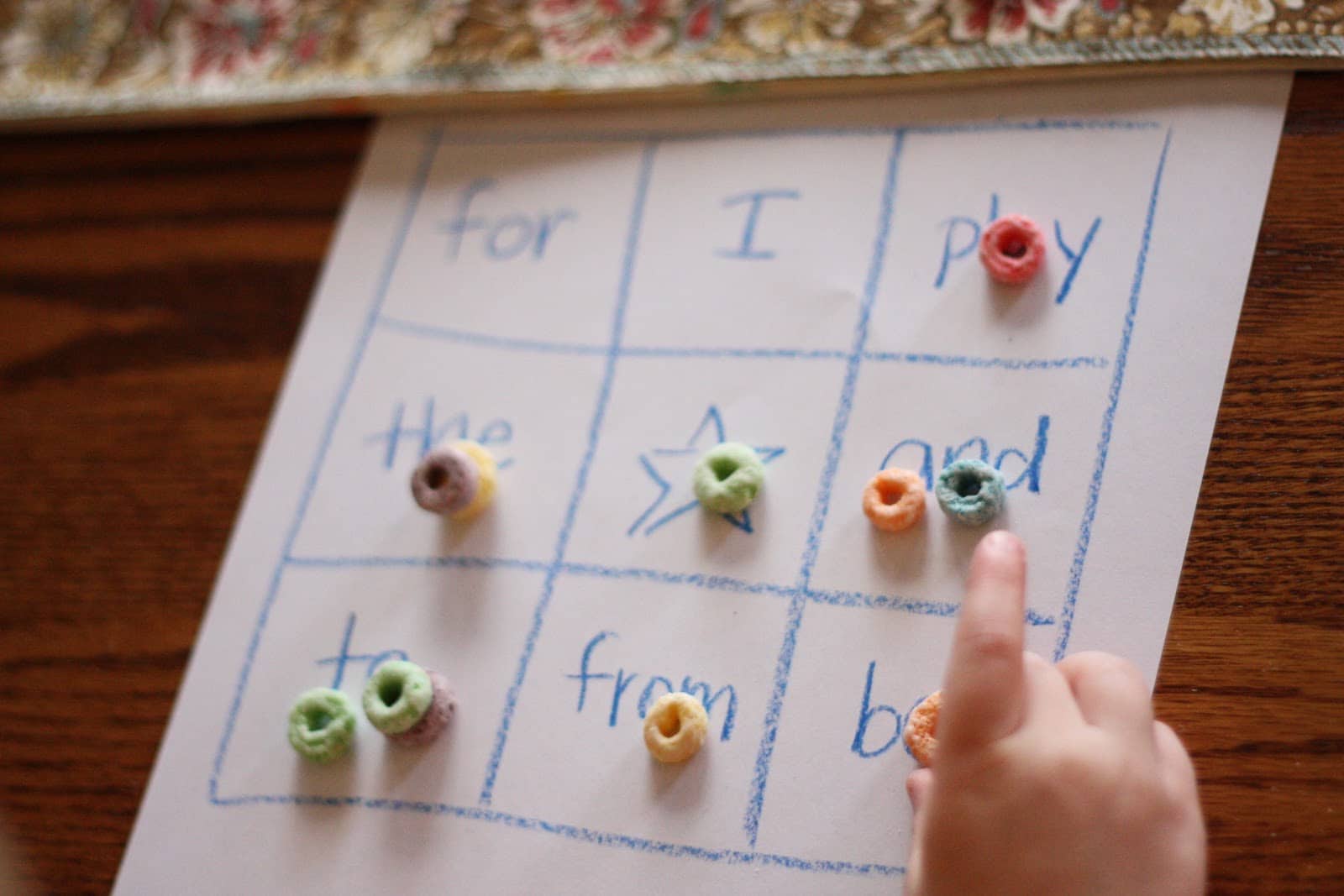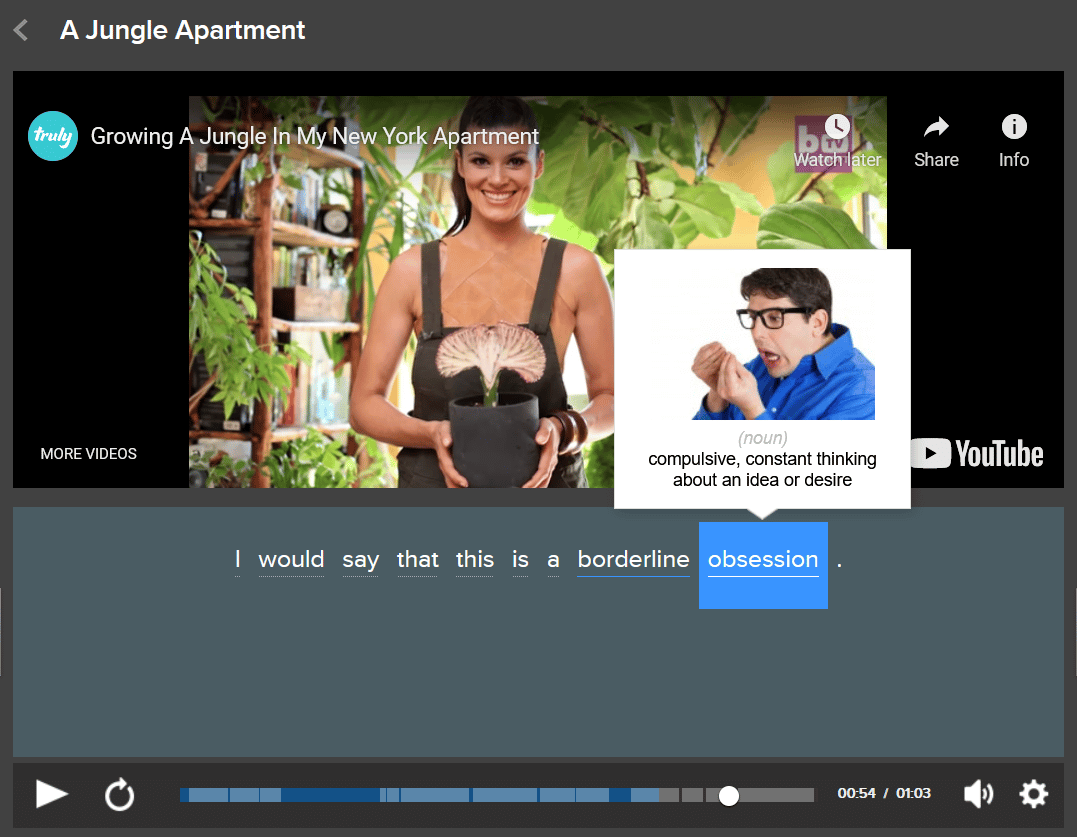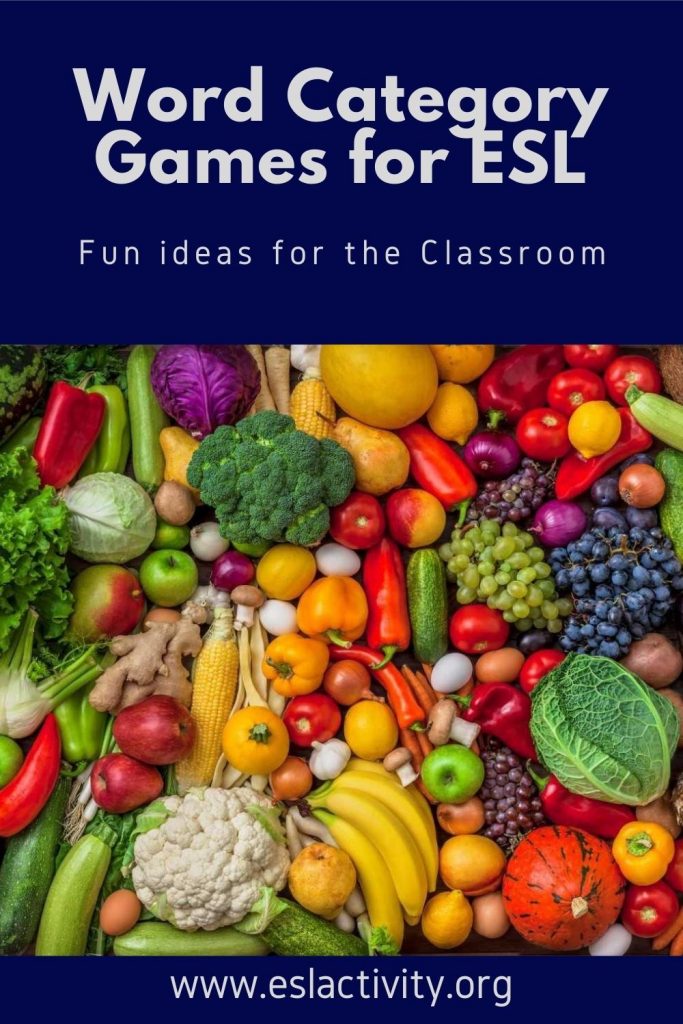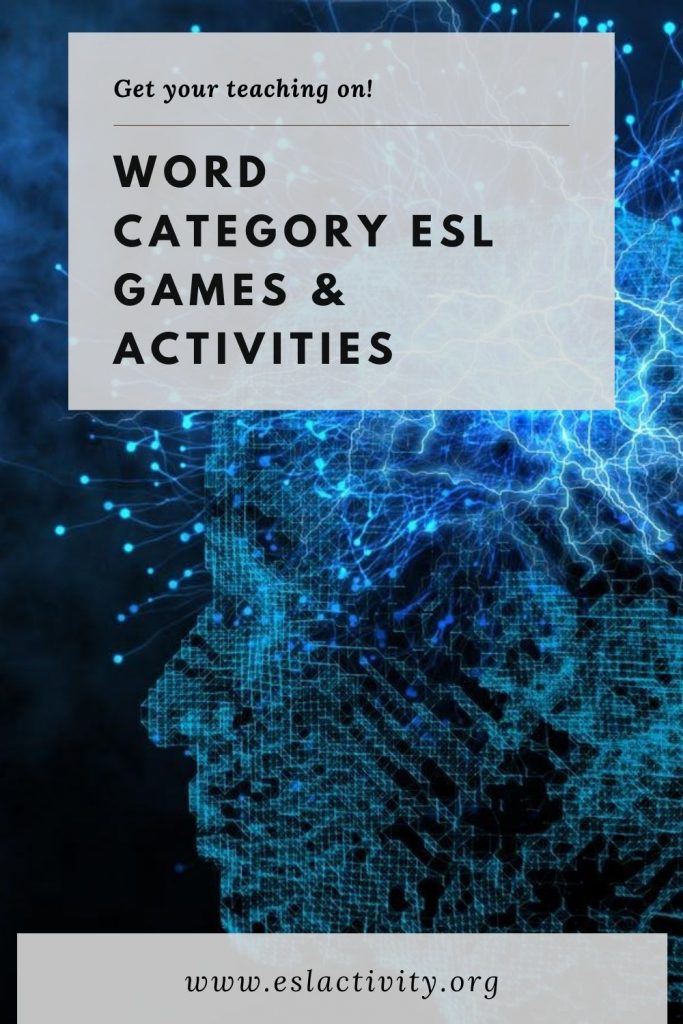A Ship Comes Loaded
ESL Word Game — Vocabulary and Speaking: Memorisation, Forming Words from Prompts — Any Level — 15 minutes
In this ESL word game, students remember and say words beginning with a certain letter. Have the students sit in a circle. Ask the students to choose a letter of the alphabet, e.g. B. Explain that the aim of the game is to say a word beginning with the chosen letter and to remember what answers other students have given. Start the game by saying ‘A ship comes loaded…’ The first student replies ‘with what?’, and you say a word beginning with the chosen letter, e.g. ‘with bananas’. The first student then says ‘A ship comes loaded…’ to the second student. The second student replies ‘with what?’ The first student then repeats your word and gives their own answer, e.g. ‘with bananas and bears’. This continues around the circle. If a student fails to come up with a word, forgets what answers have been given or repeats a word, they are out of the game. The last student left standing wins the game.
Balderdash
ESL Defining Words Game — Vocabulary and Writing: Writing Definitions, True or False, Guessing — Group Work — Upper-intermediate (B2) — 25 minutes
This ESL word game is based on a popular board game of the same name. In the game, students invent false definitions for words and score points by correctly guessing true definitions. Give each group a set of balderdash word cards. The leader of the round chooses one of their word cards, reads the word aloud and spells it. The other students then each invent a short false definition for the word that could fool the other group members and write it on a slip of paper. The leader also copies the true definition onto a slip of paper. Each student then hands their definition to the leader who mixes them up and then reads each one aloud. The other students then vote on which definition they think is correct and the leader reveals the answer. Students score one point for each vote their false definition receives and two points for choosing the correct definition. The leader scores three points if nobody chooses the correct definition. The scores are added up and another student becomes the new leader and so on. The student with the most points at the end of the game wins.
Lewis Carroll’s Game
ESL Word Game — Vocabulary and Spelling: Forming Words from Prompts — Group Work — Pre-intermediate (A2-B1) — 20 minutes
This intriguing word game was invented by Lewis Carroll who wrote «Alice in Wonderland». Tell the students that they are going to play a game where they change one word into another by changing one letter at a time. Explain that letters cannot be moved, merely substituted. Every time a letter is changed, it must result in an English word. Give the following ‘wet to dry’ example to help the students understand: wet — met — mat — may — day — dry. Start the students off with one of the easier examples. Write the first and last word on the board. Working in teams, students try to change one word into the other. Allow the teams to use dictionaries to help them with possible words. When the teams have finished, ask them for their answers. Teams score points according to the number of steps taken to turn one word into the other, e.g. wet — met — mat — may — day — dry = six points. Play several rounds. The team with the ‘lowest’ score at the end of the game wins.
Match the Squares
ESL Word Game — Vocabulary: Memorisation, Matching — Group Work — Any Level — 20 minutes
This fun matching words game can be used when you want to review words that match in some way, e.g. adjective opposites, verb opposites, prepositions, past and present verbs, etc. Draw a six-by-four grid on the board and number the squares 1 to 24. Explain that behind each square is a word. The aim of the game is to match the squares by remembering where each word is. Tell the students that they cannot write anything down. The first team selects two squares, e.g. 2 and 16. You look at your word grid and write the two corresponding words in the selected squares. If the two words match, the team scores a point and has another turn. If the words don’t match, erase them. It’s then the other team’s turn to select two squares and so on. The game continues until all the word pairs have been matched correctly. The team with the most points at the end of the game is the winner.
Minimum
ESL Word Game — Vocabulary: Forming Words from Prompts — Group Work — Any Level — 20 minutes
In this challenging word game, students form words of a certain length that begin with specific letters. Write a five-letter word on the board, e.g. table. For young learners, start with a three-letter word. Teams then take it in turns to call out a word that begins with the last letter of your word, e.g. e. Each word called out must meet or exceed the minimum number of letters in your word. Teams are allowed to use plurals to meet the minimum, but they are not allowed to repeat words. As each word is called out, write it underneath the word in a line, e.g. elbow, editor, error, elbows, erase. When all the teams have called out a word, write a new word underneath and increase the minimum number of letters by one, e.g. scream. If a team can’t think of a word, start a countdown from ten. If the countdown goes to zero, that team is out of the game. The last team left standing wins the game. As a variation, for each line, teams call out a word that begins with the last letter of the word written on the board, e.g. elbow, water, report, teach, hello. You can also have the students spell words as well as call them out.
The Longest Word
ESL Word Game — Vocabulary and Spelling: Answering Questions, Guessing, Forming Words — Group Work — Any Level — 20 minutes
In this word game, students make the longest word they can from letters won by guessing the answers to clues. One team selects a letter of the alphabet, e.g. s. Choose a word beginning with that letter, e.g. silver. Then, give the teams a clue for the word, e.g. a metal commonly found in rings. The first student to correctly guess the word wins the letter for their team. The winning team then chooses another letter. The aim of the game is for teams to get enough letters to make a long word. At a suitable point, end the round and let the teams try to make the longest word possible from the letters they have won. The team with the longest word wins the round and is awarded the same amount of points as there are letters in their word. Play several rounds. The team with the most points at the end of the game wins.
Tic Tac Words
ESL Word Game — Vocabulary: Forming Words from Prompts — Group Work — Any Level — 15 minutes
Here is an engaging ESL word game based on Tic-Tac-Toe. Draw a three-by-three grid on the board. Write a random letter in each square. Under each letter, write a number between one and ten. Teams then take it in turns to choose a letter from the grid. The team then has ten seconds to say as many words beginning with the letter as the number under the letter indicates. If the team manages to say the required number of words, they win the square. If they fail to say the required number of words, play passes to the other team. When a team gets three squares in a row, either horizontally, vertically or diagonally, they win the game. If neither team gets three in a row, the team with the most squares wins. Play several rounds to find the ultimate winning team.
Two Words
ESL Word Game — Vocabulary and Speaking: Forming Sentences from Prompts — Group Work — Any Level — 20 minutes
This word game is ideal for reviewing vocabulary and sentence structure. Write two words on the board. The first student to put up their hand and create a suitable sentence that uses the two words wins the round for their team. The winning team then chooses one student from the other team to come and join them. If the students know each other well, they normally choose the students who are really good at English, making it easier to win the game. You then write two new words on the board and the game continues. The game ends when there is only one team left. So everybody wins! It’s best to start the game off with some easy words, e.g. pen and paper. Then, gradually make the words harder or crazier, e.g. tennis and buffalo.
Word Race
ESL Word Game — Vocabulary and Writing: Forming Words from Prompts — Group Work — Pre-intermediate (A2-B1) — 20 minutes
This ESL word game can be used to practice or review a variety of vocabulary. Tell the students that they have one minute to write down as many words as possible that match certain criteria, e.g. words beginning with certain prefixes, certain letters, words that rhyme, etc. Teams score one point for each word they write. Inflections are not allowed, i.e. changing a word to express different grammatical categories, e.g. hit, hits, hitting. Play several rounds using a different criterion each time. After each round, teams swap papers for marking. The team with the most points at the end of the game wins.
Word Square
ESL Word Game — Vocabulary and Spelling: Forming Words from Prompts — Group Work — Any Level — 20 minutes
Here is a fun ESL word game to play with your students. Draw a three-by-three grid on the board. In the squares, write a nine-letter word in a random order. The centre square must contain a vowel. The aim of the game is for the teams to make as many words as they can with the letters in the square. Every word the teams write must contain the centre letter. Students cannot use any letters twice unless they are in the nine-letter word. Teams also get a bonus score if they make a word using all nine letters. Set a time limit of two minutes. The teams write as many words as they can from the square. When the time is up, teams swap papers for marking. Teams score one point for each letter in a correctly spelt word. For example, a three-letter word is worth three points, a four-letter word is worth four points and so on. If a team gets the nine-letter word, they score 18 points. Play several rounds using a different nine-letter word each time. The team with the most points at the end of the game wins.
What are your methods for teaching vocabulary?
Drills? Flashcards? Yuck! Boring!
While these can certainly be effective, they can be a quick way to lose your student’s attention if you spend too much time on them in a class.
Join our mailing list to receive a free ESL teaching resource every week.
Click to Join
So what can you do then? The answer?
Play some fun ESL vocabulary games with them!
In this huge listicle, you’ll find 17 great ESL vocabulary game ideas (suitable for adults, teens, and kids) with detailed instructions to include in your lessons.

Table Of Contents
- ESL Vocabulary Games for Kids… AND Adults, too?
- 1. Whispers
- 2. Describe It
- 3. Tongue Twisters
- 4. I went to the supermarket…
- 5. I Spy
- 6. Word Association
- 7. A-Z Categories
- 8. Match
- 9. Word Grab Race
- 10. Hangman
- 11. Stand up / Sit Down
- 12. Spelling Throw
- 13. Draw It
- 14. Word Search
- 15. Synonyms
- 16. Shiritori
- 17. Charades
- 18. Vocab Bingo
- Conclusion
Games are a great way to get your students to engage and use the language without fighting for their attention every few minutes.
Well, that’s great for children I hear you saying, but what about adults?
Well, as surprising as it may sound… Adults enjoy having fun too!
In fact, a number of the games here are what adults often play while socializing with friends or family anyway so they may already be familiar with them in the native language.
That being said, while some of these vocabulary games can be great for adults, this isn’t the case for all of them.
Some games on this list can be a little silly and adult students would most likely feel more than a little patronized if they were to play them. The same could be said for some games which may be too “boring” for children.
For that reason, this list also has information about the appropriate target student. It mentions:
- student level (from beginner to advanced)
- type of lesson (group and/or one-to-one)
- student type (children and/or adults)
Make sure to read each game carefully before trying it in your class. Make a note of any realia/resources you may need and if possible practise how you will run the class so there aren’t any surprises in the classroom! Let’s get started.
1. Whispers
- Student level: Pre-Intermediate to Advanced
- Type of lesson: Group
- Student type: Children & Adults
The idea of “whispers” is to get a message from one end of a line of people to the other. To start: –
- Person 1 needs to whisper a message to person 2 (without anyone else hearing)
- Person 2 then needs to whisper the message to person 3 etc until we reach the end of the line.
This game can get difficult because some mistakes creep into the message which can lead to a message which is vastly different at the end than it is at the start.
Once the message reaches the end, the final person reveals what they think it is. This often results in hilarity!
This game trains the students to be able to understand messages in situations that aren’t so clear. It also trains them to try to understand a sentence using context. As long as the students can form sentences then they will be ok with this game.
2. Describe It
- Student level: Intermediate to Advanced
- Type of lesson: Group or Individual
- Student type: Adults
With “describe it” the idea is to give a student a word. This can be anything you want really but nouns and verbs are going to be easier than things like adverbs and prepositions. Once the student has their word, they then have to describe it without using the word itself!
Whoever manages to guess this correctly then gets to go next and you can keep going until everyone in the class has had a turn.
The benefit of this game is that it forces students to use synonyms/antonyms that they might not use usually. It also helps them to develop the skill of using the language to try to express something even if they don’t have that particular word in their vocabulary.
This game is a little more difficult than the others and is better suited to intermediate to advanced learners. Coupled with the fact that you may lose some attention from children, this is better aimed at adults.
3. Tongue Twisters
- Student level: Pre-Intermediate to Advanced
- Type of lesson: Group or Individual
- Student type: Children & Adults
Tongue twisters are a fun way to practise new vocabulary!
In case you don’t already know what they are; A tongue twister is a sentence (or several) that is very difficult to say (usually due to a sequence of similar sounds).
An example of this would be “she sells seashells by the seashore”.
These are both great fun and extremely useful as they can be used to train pronunciation for new vocabulary. They are effective with adult students but due to their silliness, it’s no surprise that kids love them!
While there are already plenty of tongue twisters out there, you will likely have to create your own, specific to the vocabulary you are learning. (hint – don’t try to cram all of the TL into one sentence, pick one new word for each tongue twister.)
To add a more competitive element to it, (besides just saying the sentence without mistakes) you can time the students and get them to try to go faster and faster each time!
4. I went to the supermarket…
- Student level: Beginner to Advanced
- Type of lesson: Group
- Student type: Children & Adults
This game is a great one to flex those memory muscles! It goes something like this:
- Create a circle of students.
- Student 1 starts by saying “I went to the supermarket and I bought [some bread].” (this [ ] can be anything they choose.)
- Student 2 then says “I went to the supermarket and I bought some bread and [an apple].” (They have to say what the previous student said but then they choose a new object for themselves.)
- Student 3 then says “I went to the supermarket and I bought some bread, an apple and [some cheese].”
- You then continue around the circle with the students adding more and more items until somebody isn’t able to remember all of the list.
You can choose to either reset the game once the list can’t be remembered or… for a more competitive element you can choose to reset the list minus the student who couldn’t remember. You can then repeat this until there is a “definite winner”.
As this game is more to do with memory and doesn’t necessarily involve complex vocabulary, it is suitable for students of all ages and levels.
5. I Spy
- Student level: Beginner to Pre-Intermediate
- Type of lesson: Group or Individual
- Student type: Children
“I spy with my little eye…” If you didn’t play this as a child then you missed out! But fear not, you have a chance to catch up with this fun game now.
- Student 1 first picks an object in the room (without saying what it is). For example, maybe they see a “clock”.
- They then have to say the phrase “I spy with my little eye, something beginning with…” and say the first letter of the word [c].
- The other students have to guess what it is and whoever is correct becomes the next person to play.
Keep going until everyone has had a turn to play. This game can be fairly simple if there are common words such as “pen”, “book” etc.
However, if you really want to bring more of a challenge, then bring some props with you or load up an image on a projector with many items.
This game is good when learning basic vocabulary and is better suited to beginners and more specifically children.
6. Word Association
Student level: Pre-Intermediate to Advanced
Type of lesson: Group or Individual
Student type: Children & Adults
This one is great to stimulate some creativity. It is also a very simple idea.
- Student 1 says a word. It can be anything but for this example, we will say “green”
- Student 2 says a word that is related to Student 1’s word. “Grass”.
- You can then continue around the chain with each student adding a related word to what the previous person has said.
The rules are simple. You have to be able to explain why a word is related. You also can’t repeat a word that has already been said! To make this one harder you can also include a timer.
7. A-Z Categories
Student level: Pre-Intermediate to Advanced
Type of lesson: Group or Individual
Student type: Children & Adults
In this game, the teacher picks a category such as (fruit, countries, languages, etc). The idea is then for the students to think of something for each letter of the alphabet.
So if we picked the category “countries” then it would go like this:
- Student 1: “America”
- Student 2: “Belgium”
- Student 3: “China”
You can then continue until all of the letters have been completed. Some beginners will be fine with something like “food” but some categories can be more difficult so bear this in mind when picking a topic.
You may also want to consider cultural backgrounds. “Countries” is a good topic because although they have different names in different languages, they are known by everyone. However, a topic like “bands” can become more difficult as students may want to pick their local favourites which might not be known by others.
8. Match
Student level: Beginner to Pre-Intermediate
Type of lesson: Group or Individual
Student type: Children
For this game, you need two sets of cards. The first set of cards will have pictures of various things (e.g ball, house, etc), the second set will have the vocabulary on. As you probably have guessed by now, the student’s aim is to match the pictures up with the vocabulary.
You can vary this one a bit depending on how many are playing.
- With just one student playing you can simply time how long it takes them to match them all and then get them to try and beat that record the second time around.
- With more students, you can divide them into two teams. Whichever team gets the most pairs wins. (You may prefer to have the teams have one student up at a time to make sure things don’t get too crazy!)
This one is for children. It works especially well with complete beginners because the explanation needed is minimal, demo the game to them and they will take to it like ducks to water!
9. Word Grab Race
Student level: Beginner to Intermediate
Type of lesson: Group
Student type: Children
To set this game up you again need a collection of cards with the vocabulary on. Mix all the cards up (while still being able to see them all.) Next, divide your students into two teams. A student from each group will have their turn first.
When the teacher says the word, the chosen student from each team has to run to the front and find the correct card with the word on from the pile. Once they have brought it back to the group both teams will then switch the active player.
This is repeated until all of the cards have been captured. The team with the most at the end wins.
To make this harder, instead of the teacher saying the word you could show a picture (on a screen) or hold up an object. This forces the students to use the vocabulary and understand what it means.
10. Hangman
Student level: Pre-Intermediate to Advanced
Type of lesson: Group or Individual
Student type: Children & Adults
Hangman takes a little bit of explaining but… once your students understand it then they will love it!
The basic point of hangman is for the students to guess a word (picked by the teacher).
They take turns guessing a letter each. If the guess is correct (the letter is in the word) then the teacher will write the letter on the board, if the guess is wrong then a part of “the hangman” is drawn.
There are 8 parts to the drawing:
- Draw the post (an upside-down “L”).
- Draw the head (a circle) underneath the horizontal part of the post.
- Draw the body (a vertical line under the head).
- Draw arm 1 (a stick from the body).
- Draw arm 2 (another stick from the other side of the body).
- Draw leg 1 (a stick at the bottom of the body).
- Draw leg 2 (a stick on the other side at the bottom of the body).
- Draw the noose (a line joining the head to the post).
The students need to guess what this word is before the picture of the hangman is complete. If they guess it correctly before the hangman is complete then they win, if not then they lose.
If you want to include the students further then whoever wins the round can have a turn at drawing the hangman in the next round.
This game is fun regardless of age, group size or ability (as difficulty can be altered by using harder or easier vocabulary).
11. Stand up / Sit Down
Student level: Beginner to Intermediate
Type of lesson: Group
Student type: Children
For this game, you will need either a board and projector or some realia. First of all, make a line of chairs with the students sat down (facing the teacher).
- You will then show either an image or hold up an object.
- Next, you say either the correct vocabulary or a different word.
- If what you say and what is shown is correct then the children stand up, if not then they stay sat down.
To add a competitive angle to this you can have the ones who get it wrong lose the game and leave the round, repeat this until there is a winner. Alternatively, if everyone is very good then you could do the last student to stand up / sit down lose that round.
This game is ideal for children, they love getting involved and moving around. It is a great way to win pre-schoolers back if you find you have lost their attention part way through a class.
12. Spelling Throw
Student level: Beginner to Intermediate
Type of lesson: Group
Student type: Children
The idea of this game is to get the students to spell a word out one letter at a time, each student takes it in turns saying each letter though which is what makes it difficult.
To begin, you first need to arrange the students in a circle (either seated or standing). You will also need a ball. For this example let’s say the chosen word is “tiger”.
- Student 1 – “t” *throws the ball to student 5
- Student 5 – “i” *throws the ball to student 3
- Student 3 – “g” etc
This continues until the word is complete. Again, like with the other games you could do a knockout rule where if a student gets the wrong letter then they are out of that round (repeat until there is a clear winner).
If this game is slightly too easy for the students then you can introduce a timer system where they will only get a few seconds to answer, if they don’t answer in time then they are also out.
This game is best suited to children, they will enjoy using a ball to interact with. It is also more suited to beginner levels (especially when learning how to spell.) Keep this one away from adults or advanced students unless you want to hear some patronized groans!
13. Draw It
Student level: Beginner to Intermediate
Type of lesson: Group or Individual
Student type: Children & Adults
Great fun with children and adults alike. Similar to “describe it”, the idea is for the student to express a chosen word without saying it. The difference here is that we are now drawing instead of describing.
Obviously we will need something to draw with for this. Pen and paper would work fine if we are struggling for resources but it would be better to use something bigger so it’s easier for the students to see, so try to grab a whiteboard!
Once you have a chosen student, tell them the chosen word (without anyone else hearing), they then have to draw it. The other students have to guess and the first one to get it right can then have their turn. Keep going until everyone has played at least once.
The advantage of this game over “describe it” is it can be a lot easier for beginner students to draw something than to try to think of a way to describe it in English. That being said if your students are advanced, they may benefit more from the added difficulty of “describe it”.
14. Word Search
Student level: Beginner to Advanced
Type of lesson: Individual
Student type: Children & Adults
These take a little longer to prepare but when it comes to actually playing, they are as easy as they come.
For anyone that doesn’t know what a word search is, you basically have a grid of squares. Inside each square is a letter. At first glance, it will appear as if you are staring at a giant mess of random letters. However, there are words hidden inside this mess that must be found.
Although this game could, in theory, be done in groups, it is one that is better suited towards individual students. It can be hard for some students to wait for their turn without shouting out that they’ve found one (especially true with children!).
The great thing about a word search is that they are very easy to play. Even if you use advanced vocabulary, the ability to look for a word is still the same so this game is suitable for students of all levels.
15. Synonyms
Student level: Intermediate to Advanced
Type of lesson: Group or Individual
Student type: Adults
With synonyms, the point is to give a student a word, and they have to give you a synonym for that word in return. (E.g. teacher says scalding, student says hot). For this, you will need to do some research and make sure you know some synonyms for the TL of that lesson.
A very basic idea, but we have a lot of room to work with this. Here are some things we can change:
- Add a time limit (e.g the student has 3 seconds to reply)
- Time limit for the whole group (e.g how many can the group get in 3 minutes)
- In a group, the student (who just answered) could ask the next student
- Use antonyms as well
- Have the students ask the teacher
This game is dependant on the students having at least a medium-size vocabulary so I would advise sticking to medium to advanced level students. Also, while this game is fun to an extent, it is more so for adults. Some children may lose concentration with this one so only play with them if you know you can hold their focus.
16. Shiritori
Student level: Intermediate to Advanced
Type of lesson: Group or Individual
Student type: Adults
The classic Japanese game – Shiritori! You need very little to play this game, which makes it ideal as a backup activity as well.
Simply set up the chairs in the classroom so that everyone can see and hear each other clearly. A circle arrangement is a great choice as it allows everyone to hear each other and there’s an obvious order to whose go it is.
- Choose a student or go first yourself
- The first person (A) says a word. This can be something that was taught in the class if you want to reinforce that. Or, if this is a backup activity then it can be any word.
- The next person to the left (B) will then say a word that starts with the last letter of A’s word. So if A said “boat” then B could say “three”.
- The game carries on around the circle until you reach the original student again.
- At this point you can either end the game there or carry on if you have time.
A very basic idea but we have a lot of room to work with this. Here are some things we can change:
- Add a time limit (e.g the student has 3 seconds to reply)
- Time limit for the whole group (e.g how many can the group get in 3 minutes)
- In a group, the student (who just answered) could ask the next student
- Use antonyms as well
- Have the students ask the teacher
This game is dependent on the students having at least a medium-size vocabulary, so I would advise sticking to medium to advanced level students. Also, while this game is fun to an extent, it is more so for adults. Some children may lose concentration with this one so only play with them if you know you can hold their focus.
17. Charades
Student level: Beginner to Intermediate
Type of lesson: Group
Student type: Children & Adults
In case you haven’t played charades before, this is how to play:
- Select a student to be “a word”, e.g. red, an apple
- Without speaking, this student has to get the other students to guess the word.
- They can elicit the answer by using body movements, pointing to things in the room etc. Basically anything, as long as they do not speak.
- Whoever guesses the answer first gets to be “it” in the next round.
This is a great game for beginners as it works better with beginner vocabulary (run, sit, 4 etc.)
Beware, you may struggle with more complex vocabulary… (try acting out the word situational!)
18. Vocab Bingo
Student level: Beginner to Intermediate
Type of lesson: Group
Student type: Children & Adults
Prepare Bingo sheets with grids and add one word to each square. Select the grid size (from 3×3 to 6×6) and the words according to the level of English of your students and the expected duration of the game.
Write all words you’ve added to the sheets on a list; maybe add some more. Call out the words in random order, and have the students mark the words when they hear it.
They can use a pen, or better: put little items on the squares. This is more fun, and you can reuse the sheets.
The first person to mark each word on his sheets wins.
You can make this ESL vocab game a bit harder: Don’t call out the exact words in the squares, but synonyms, or opposites, or any kind of related words (for example when you call “rain”, they have to mark “umbrella”).
Conclusion
So, there we have it, 18 games for you to try in your classes.
Make sure to pay attention to the suitability for each game and most importantly practise these before you get in the classroom.
Hopefully, these will also have sparked your creative juices so you will be able to think up some of your own.
Remember to keep it fun, educational and engaging!
If you want to find activities to build classroom community, you can have a look at this article.
Action Verbs
Play word search game online on Action Verbs.
Action Verbs (-ing)
Play word search game online on Action Verbs ending with ‘ing’.
Animals on a farm
Play word search game online on Animals on the farm.
Animals in the sea
Play word search game online on Animals in the sea.
Wild Animals (Zoo Animals)
Play word search game online on Animals in the zoo. (animals in the wild)
Fruits Interactive Word Search
Play word search game online on fruits vocabulary.
Bathroom Interactive Word Search
Play word search game online on bathroom vocabulary.
Bedroom Interactive Word Search
Play word search game online on bedroom vocabulary.
Body Parts Interactive Word Search
Play word search game online on body parts (anatomy) vocabulary.
Christmas Interactive Word Search
Play word search game online on Christmas vocabulary.
Clothes Interactive Word Search
Play word search game online on clothes vocabulary.
Colors Interactive Word Search
Play word search game online on colors vocabulary.
Countries Vocabulary1
Play word search game online on Countries Vocabulary.
Countries Vocabulary2
Play word search game online on more Countries Vocabulary.
Drinks vocabulary
Play word search game online on drinks Vocabulary.
Food vocabulary
Play word search game online on Food Vocabulary.
Furniture vocabulary
Play word search game online on Furniture Vocabulary.
Halloween Words
Play word search game online on Halloween Words.
Insects vocabulary
Play word search game online on insects vocabulary.
Jobs/Occupations
Play word search game online on Jobs and Occupations.
Kitchen Vocabulary
Play word search game online on Kitchen Vocabulary.
Musical Instruments
Play word search game online on Musical Instruments.
Nature Vocabulary
Play word search game online on Nature Vocabulary Vocabulary.
Numbers 0 to 10
Play word search game online on Numbers Spelling.
School Supplies
Play word search game online on School Supplies Vocabulary.
Shapes Vocabulary
Play word search game online on Shapes Vocabulary.
Sports Words
Play word search game online on Sports Vocabulary.
Transportation Vocabulary
Play word search game online on Transportation Vocabulary.
Vegetables
Play word search game online on Vegetables.
Weather Vocabulary
Play word search game online on Weather Vocabulary.

By
Last updated:
July 19, 2022
Trying to teach a group of intermediate students ain’t easy.
At this level, rehashing the basics is a bore and introducing more advanced topics can result in frustration.
Tired of seeing only two or three students actually paying attention in your class?
It’s amazing what a difference a few fun games can make!
Things like building vocabulary are an essential part of learning English, but they can be dull. Spice up the classroom with some of these ESL vocabulary games to enhance the learning experience.
Download:
This blog post is available as a convenient and portable PDF that you
can take anywhere.
Click here to get a copy. (Download)
10 ESL Vocabulary Games That Will Get Your Students Engaged
1. Last Man Standing
This game is fast-paced, but allows students some time to think. It also encourages peer learning, as students will pick up on words they hear others speaking. To play the game, grab a ball and have all the students form a circle. Name a category or theme, such as things found in a kitchen, food, professions, and so on.
Begin by tossing the ball at a student. That student will shout a word related to the theme and throw the ball to another student. As each person catches the ball, they need to come up with another word that fits the theme. If they repeat a word that has already been said or can’t think of a new one within a few seconds, they are out and must sit on the sidelines. Don’t worry, they’ll still be learning!
Take things up a notch with a different version of “Last Man Standing.” Instead of naming a theme, each student gives the next student another theme. For example, you might start off with “something red.” The first student to catch the ball could say “strawberry” and then choose another topic and throw the ball to the next student. This makes the game much more difficult, since students cannot think of a word until they know what their theme is.
2. Pictionary
Most English speakers are familiar with Pictionary, the drawing game. You can use the cards from the actual board game to create a classroom activity that will thrill your students. This is a good, high action game that students really get into.
Chalkboard Pictionary. To play in a classroom with many students, it’s not very practical to use the game board. This means you’ll be using the chalkboard or whiteboard at the front of the room.
Divide the class into two teams and create a small column for each team on one side of the board. You’ll record their points here. Have one person from Team A come up to the front. Have the student draw a card (try using Pictionary Junior cards if the adult ones are too advanced for your class). Alternatively, you can write words on slips of paper for students to choose.
The student must convey the word to his or her team using only drawings. Students cannot use words, symbols or hand gestures. Limit the time to three minutes maximum. Each correct word is a point and the first team to get 10 points is the winning team.
3. Charades
Charades is quite similar to Pictionary, but it uses actions to communicate the secret word in place of photos. This is a great game for those days when your class is dragging and people are falling asleep. Get them up and get them moving!
Write down words on slips of paper for students to choose. Verbs are likely to be the easiest, but you can also use more complicated words, provided you are sure most of the students know them.
Divide the class into two teams and have one person from each team choose a piece of paper and act out the word. The teams must guess the correct word before three minutes run out. For each correct word, that team receives a point. The team that hits ten points first is the winning team.
4. Taboo Words
Taboo Words helps students practice with synonyms and descriptions. Separate the class in half and have the two teams sit on opposite sides of the room, facing each other. Each team will choose a person to sit in front of their team, facing them in the “hot seat.” You will stand behind the students and hold up a piece of paper with a word on it. The students in the hot seats will not be able to see these papers.
Teams have three minutes (or any amount of time you want to set) to get their hot seat member to say the word on the paper. The catch is, they can’t say the word under any circumstances.
Tips for playing in a large class. If you have more than 12 students in a class, things can get a little chaotic with this game. In this case, it’s usually simpler to divide everyone into teams of 5-6 people and have only one team go at a time.
5. 20 Objects
Test your students’ memories and vocabulary at the same time with this fun game. All you need is a clear desk and 20 common items from around the classroom. You can even grab things from your backpack or purse.
Arrange the objects on the desk and let students gather around to look at them. Cover everything with a sheet (or something similar) after one minute and send everyone back to their seats. Each students should write out as many items as they can remember on a piece of paper, all in English.
When everyone is done, write a list of the items on the chalkboard and allow students to self-correct. Alternatively, you can call out the objects and give a point for each one that is correctly written.
6. Categories
Students will beg to play this game once they get the hang of it! It’s a great way to fill up the last few minutes of class, too.
Have students draw six columns on their paper and write a category at the top of each column. You can choose categories that fit what you’ve been studying in class or go with some basics. Popular categories include food, names, cities or countries, furniture, verbs and clothing.
Choose a random letter and write it on the board. Give students enough time to write down a word for each category that starts with that letter. You can repeat with new letters as many times as you like.
7. Letter Scramble
Take a list of words that your students have recently learned and write a scrambled version of each on the board. Allow students to unscramble the words on their paper. The first one to finish deciphering all the words wins.
8. Chalkboard Acronym
Write a word vertically on the board and then have students come up, one at a time, to write a word starting with each letter of the vertical word. For example:
Cute
Under
Porcelain
Make this tougher by requiring the words to be related to the acronym.
9. What Am I Thinking Of?
If you’ve ever played 20 Questions, you already know how this game goes. To make it a little easier on your students, however, you’re going to include some visual clues.
Pair students up and have them think of an object. Each student should write 5-10 words describing the object on a piece of paper. When you call time, the students swap papers and try to figure out what the other person described. The first team to have both words guessed correctly wins.
10. Word Bingo
You’ll need to do a little preparation for this game, but it’s well worth it. Make bingo sheets with a 4×4 grid and add words to each square. Hand these out (each one should be unique) and have students mark the correct word when you call it out. The first person to finish marking their entire page wins.
There are some fun variations to Word Bingo!
Picture Bingo: Use pictures on the Bingo card and call out the words that relate.
Synonym Bingo: Get those brains working by giving students a word that means the same thing as a word on their card.
Antonym Bingo: This is just as it sounds. Call out the antonyms of words on their cards and see how many students get it.
Video Bingo: Instead of calling out individual words, make the game more challenging by playing a video that has the words on students’ bingo cards. This will encourage students to listen closely and provide a more natural way to practice.
You can use FluentU for this variation of the Bingo game, since the program has a few features that’ll make prep easier for you.
FluentU has many videos created for native English speakers like movie trailers and inspirational talks. You can find videos that use specific words just by searching for the word you want to include. Each video also has a key word list before you play it, which you can use to populate your Bingo boards.
You can even assign a variation of this to students for homework: You can import all the words students are learning into flashcard decks that students can then study with personalized quizzes. Or, you can ask students to pick a video and add five new vocabulary words to their flashcard list as they watch—to do this, they just have to click on any word in the subtitles then click to add the word to their words.
10 ESL Vocabulary Games to Get Your Students Seriously Engaged
ESL vocabulary games make class time a little more exciting. You can use them to review previously learned words, but keep in mind that games also make great rewards for when your students do well in class.
Download:
This blog post is available as a convenient and portable PDF that you
can take anywhere.
Click here to get a copy. (Download)
If you’re looking for some ESL games and activities for word categories, then you’re certainly in the right place. Keep on reading for the top 15 that are engaging, interactive and student-centred and can be used for vocabulary categories (jobs, animals, etc.) or various kinds of grammar (past tense verbs, adjectives, etc.).
Word categories ESL games
Word Category Activities and Games
Let’s get into the best word categories games to use with English learners.
#1: Word Categories Volleyball
Divide the class up into two teams and put a row of desks down the middle. Using a balloon, students take turns hitting it back and forth between the two teams. The person hitting it has to say a word belonging to the category (animals, past tense verbs, adjectives, etc.). No word can be repeated.
If the balloon hits the floor or someone doesn’t say a word, the other team gets a point. Keep playing until a certain number of points is reached.
#2: Word Category Board Race
Divide the class up into teams (2-4, depending on the size of class and space on the whiteboard) and have each team line up in front of the whiteboard with one marker per team. Call out a category (animals, food, verbs, etc.) and the first student has to write a word from that category. Then, they pass the marker to the next student who has to do the same and they return to the back of the line. Continue the game for 1-2 minutes and the winner is the team with the most correct words.
#3: A to Z Alphabet Words Categories Game
Unless you teach absolute beginners, it’s likely that your students already know a bunch of words in any given category. In this case, consider using this as a warmer activity to help students activate their prior knowledge about a topic. Or, use it as a review at the end of class.
The way it works is that in pairs or small groups, students have to write down the alphabet on a piece of paper. Then, students have to write down a word that starts with each letter belonging to that certain category. For example jobs.
A =
B = baseball player
C =
D = doctor
E =
F = fisherman
The team with the most words at the end of the allotted time is the winner. Check it out:
www.eslactivity.org/a-to-z-game
#4: Flyswatter Game
This is a nice game for creating some serious excitement in the classroom! If the word categories are related to vocabulary (jobs for example), then fill the board with a bunch of those. One student from each team comes to the whiteboard and takes a flyswatter. Give some hints about the world and the first student to slap the correct one gets a point for their team. Erase the word and add a new one.
If you’re focusing on categories of words related to grammar and building sentences, then fill the board with nouns, verbs, adjectives, etc. Tell students to find a verb. The first student to slap one gets a chance to make a sentence with that word and if they do, they get a point for their team. Find out more:
www.eslactivity.org/flyswatter-esl-vocabulary-game-for-kids
Category game list
#5: Word Category Concentration
This is a challenging memory game that works well for categories of words. Make up a bunch of matching cards that have a general category and then a specific item. Around 16 is a good number. For example:
- food—apple
- sport—soccer
- job—teacher
- etc.
Then, put students into groups of 3-4 and give each group a set of cards and it essentially becomes a vocabulary and matching memory game. Learn how to do it:
www.eslactivity.org/concentration-an-esl-vocabulary-game
#6: Categories ESL Speaking Lesson
It’s quite easy to plan your own lessons about almost anything. Check out this video for the simple steps to follow:
#7: Word Association
Unless students are absolute beginners, it’s likely that they already know a good amount of vocabulary from a lot of different word categories (animals, jobs, clothing, food, adverbs, adjectives, etc.). If this is the case, doing something like this word association activity can be quite helpful for helping student activate their prior knowledge before jumping into the new stuff.
It’s basically a brainstorming exercise. More advanced, older students can do it in pairs while younger beginners can do it together as a class. Have a look here:
www.eslactivity.org/word-association-an-esl-vocabulary-activity
#8: Memory Circle Word Categories Game
This is a fun memory game that works well for kids. Call out a certain category (jobs) and the first student has to say a word (doctor). The second student says doctor and then adds their own word (truck driver). And so on it continues until someone misses or can’t add their own word. They sit down and are out of the game. Continue until time is up or until 1-2 people are left standing.
#9: Odd One Out
This is a nice word category game to try out with beginners. It can be used for vocabulary or grammatical concepts. Write down groups of four words, one of which doesn’t match:
- doctor, truck driver, hockey, teacher
- go, teach, eat, walked
In this first case, hockey doesn’t fit because it’s not a job. In the second case, walked because it’s a past tense verb. Multiple answers may be possible which I accept as long as students are able to support it with a reason. Check it out:
#10: Word Categories Survey
Just ask my students and they’ll tell you how much I love doing surveys in my classes! They cover a range of skills, get students out of their seats and moving around the classroom and can be used for almost any topic, grammar point or vocabulary set. Of course, it’s possible to use them for any word category (jobs, travel, sports, hobbies, etc.).
The better news is that it’s easy to make your own in just a few minutes once you get some practice with it. Find out how:
www.eslactivity.org/esl-surveys
#11: Ball Toss Word Categories Game
Try out this fun game with kids. Write down a bunch of categories (job, food, city, etc.) using a marker on the beach ball. Then, students toss the ball around the classroom. Whoever catches the ball has to say a word from the category that their right thumb is touching. My rule is that no word can be repeated. Check it out:
www.eslactivity.org/ball-toss-4-skills-esl-activity
#12: Listening for One Specific Word Category
Teaching listening skills can be a bit challenging. However, a way to make it a bit easier for our students is to get them to listen for one specific thing. In this case, it could be to take notes on all the jobs that they hear mentioned. Or, all the examples of past tense verbs. Base it on whatever category of words you’re teaching. More details here:
ESL Listening Activities, Games, Worksheets, and Lesson Plans
#13: Charades
To review words in categories, consider using charades. Have a look at this video for all the details you need to know:
#14: Dictogloss
This is a challenging listening activity for more advanced level students. Find (or write) a passage that contains lots of words from the target category. Then put students into pairs and read it out at a faster than normal pace. Students have to take notes and try to recreate what they just heard.
Read it out again quickly and students do the same thing. Finally, they can compare what they have with the original version. The teacher can highlight the words from a certain category (with the students’ help of course). Check it out:
www.eslactivity.org/dictogloss-esl-listening-and-speaking-activity
#15: Name 5 Things in a Word Category
This is a fast-paced warm-up game that’s ideal for word categories. In groups, students have to write down 5 things that belong to a certain category. Some easy ones are food, animals, things they can see in the classroom, etc. More advanced students can do things like things are good for the environment, things they can see that are yellow, habits that may cause cancer, etc.
The team that finishes first puts up their hands and that round is done.
#16: Appearance Adjectives
A common category of words is adjectives to describe people’s appearance. Here are some of my favourite games and activities:
Appearance Adjectives ESL Activities.
Did you like these Word Categories Games?
Yes? Then you’re going to want to check out this book over on Amazon: 101 ESL Activities for Teenagers and Adults. The key to better English classes is a wide variety of interesting, engaging, and interactive activities and games and this book will help you with just that.
Pick up a copy to keep on the bookshelf in your office to use as a handy reference guide. Or, take the digital version with you on any device to your favourite coffee shop for some lesson planning on the go. Finally, consider listening to the audio version while commuting to work for a serious dose of inspiration for teaching.
Whatever the case, pick up a copy of the book today and get ready some ESL teaching awesome in your life. Head over to Amazon to find out more:
Have your say about Words Categories Games and Activities
What’s your top pick for word categories games? Is it one of the options from this list or do you have another one that you’d like to recommend? Leave a comment below and let us know what you think. We’d love to hear from you.
Also be sure to give this article a share on Facebook, Pinterest, or Twitter. It’ll help other busy English teachers, like yourself, find this useful resource.
Word categories games
Last update on 2022-07-17 / Affiliate links / Images from Amazon Product Advertising API

